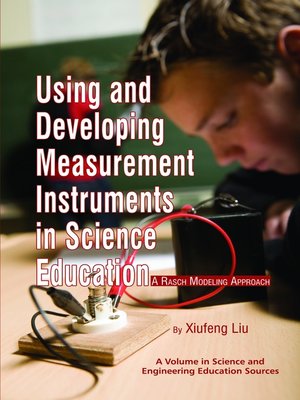Using and Developing Measurement Instruments in Science Education
ebook ∣ A Rasch Modeling Approach · Science & Engineering Education Sources
By Xiufeng Liu

Sign up to save your library
With an OverDrive account, you can save your favorite libraries for at-a-glance information about availability. Find out more about OverDrive accounts.
Find this title in Libby, the library reading app by OverDrive.



Search for a digital library with this title
Title found at these libraries:
| Library Name | Distance |
|---|---|
| Loading... |
This book meets a demand in the science education community for a comprehensive and introductory measurement book in science education. It describes measurement instruments reported in refereed science education research journals, and introduces the Rasch modeling approach to developing measurement instruments in common science assessment domains, i.e. conceptual understanding, affective variables, science inquiry, learning progression, and learning environments. This book can help readers develop a sound understanding of measurement theories and approaches, particularly Rasch modeling, to using and developing measurement instruments for science education research. This book is for anyone who is interested in knowing what measurement instruments are available and how to develop measurement instruments for science education research. For example, this book can be a textbook for a graduate course in science education research methods; it helps graduate students develop competence in using and developing standardized measurement instruments for science education research. For use as a textbook there are summaries and exercises at the end of each chapter. Science education researchers, both beginning and experienced, may use this book as a reference for locating available and developing new measurement instruments when conducting a research study.







